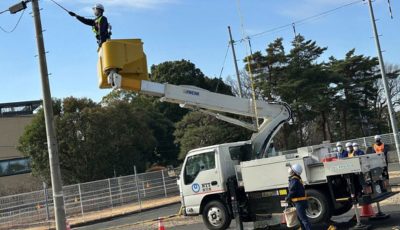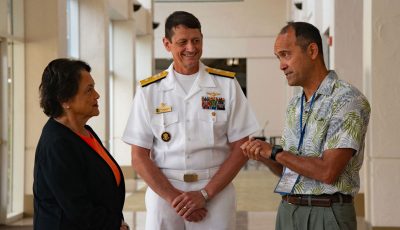New ROV set to explore Marianas Trench in coming years
To mine the discoveries waiting at the bottom of the Marianas Trench, a hybrid remotely operated vehicle is needed, according to Dr. Jeff Drazen, ecologist and co-chief scientist of a recent expedition over the Marianas Trench last November and December.
During the research, scientists deployed landers, which are platforms that hold sampling equipment like cameras, baited trap, metal grabs, or cores, to study the trench.
There were 92 deployments of these landers, according to Drazen, but to fully explore the trench, scientists would need a hybrid remotely operated vehicle, according to him.
He indicated that no such equipment currently exists. He said an ROV could be operated in real time through a fiber optic cable connected to a ship.
The United States’ only HROV, Nereus, was lost in an expedition this year down in the Kermadec Trench north of New Zealand.
Drazen was aboard that expedition, and said Nereus died on a dive at 10,000 meters.
“The flotation imploded, and turned it into a piece of rubble on the seafloor,” he said.
“When the Nereus went kaput, it basically kneecapped us. It kneecapped the Unites States’ ability to explore the deepest part of the ocean. We have landers and they work great but to actually explore and go around… to take that animal off that rock, that kind of interactive study was gone.”
The Schmidt Ocean Institute is currently constructing a more advanced ROV for use by the R/V Falkor, the vessel used in Drazen’s recent Marianas Trench expedition. In contrast to Nereus, the new vehicle will be optimized for remotely operated configurations, according to SOI’s website.
It will be equipped with two manipulator arms that will allow an operator to hold a fixed object like a rock, while also using the other arm to collect a sample, among other upgrades, according to the website.
“It’s very likely we’re going to be on Guam or Saipan in the next couple of year and hopefully this time with a vehicle,” Drazen said.



























